Why ATX Case Expansion Slots Define Your Gaming PC's Future
When building a custom gaming PC, it's easy to focus on the CPU and GPU, but the ATX case expansion slots—those rectangular openings on the back of your PC—are just as critical for your rig's future. A case is more than just a box to hold your parts; it is the foundation that determines your ability to upgrade and expand. These slots are the physical gateways that allow components plugged into your motherboard to connect to the outside world, making them a key factor in your PC's long-term value and versatility.
Quick Answer for ATX Case Expansion Slots:
- Standard ATX cases: 7 expansion slots
- Micro-ATX cases: 4 expansion slots
- Mini-ITX cases: 1 expansion slot
- Purpose: Provide external access for expansion cards installed on your motherboard.
- Common uses: Graphics cards, sound cards, network cards, capture cards.
Here’s a common point of confusion: motherboard slots are the electronic PCIe connectors where you plug in cards. Case expansion slots are the physical cutouts that let those cards' ports (like HDMI or USB) stick out the back. A motherboard may have several different types and sizes of PCIe slots (e.g., x16 for a GPU, x1 for a smaller card), but the case has a fixed number of horizontal openings. For a successful build, the number of slots on your case must match your ambitions for the motherboard. You can't use seven motherboard PCIe slots if your case only has four openings, and a large graphics card might cover multiple slots at once.
Understanding this relationship is key to building a PC that can evolve. As games demand more power for features like AI graphics rendering, and as streamers need more cards for capture and audio, your case's expansion slots determine your upgrade path. A well-planned rig ensures you won't be limited down the road.

Key atx case expansion slots vocabulary:
What Are Expansion Slots and Why Do They Matter?
In short, expansion slots are all about potential. They come in two parts: the electronic slot on the motherboard and the physical opening on the case. Motherboard slots (usually PCIe) are the data highways that let you add powerful components like a new video card or a dedicated sound card. Without them, you'd be stuck with the hardware that came built into the motherboard.
The atx case expansion slots provide the physical access and support for these cards. They allow a graphics card's video ports or a sound card's audio jacks to be accessible from outside the case, and they provide a secure anchor point to hold the card in place. This dual-system is fundamental to PC customization and performance. A great gaming rig, like those from Syber, ensures perfect harmony between the motherboard and case, allowing for maximum performance and future upgrades. For more on case basics, check out Syber's guide on Case Confusion: What Does ATX Even Mean?.
Understanding ATX Case Expansion Slots and Motherboard Compatibility
What's the Difference: Motherboard Slots vs. Case Slots?
To build a high performance gaming pc build, understand that "expansion slots" refers to two parts working together. The motherboard has electronic PCIe slots where you plug in components for power and data. The PC case has physical atx case expansion slots—the openings that let your card's ports connect to your monitor, speakers, and other external devices.
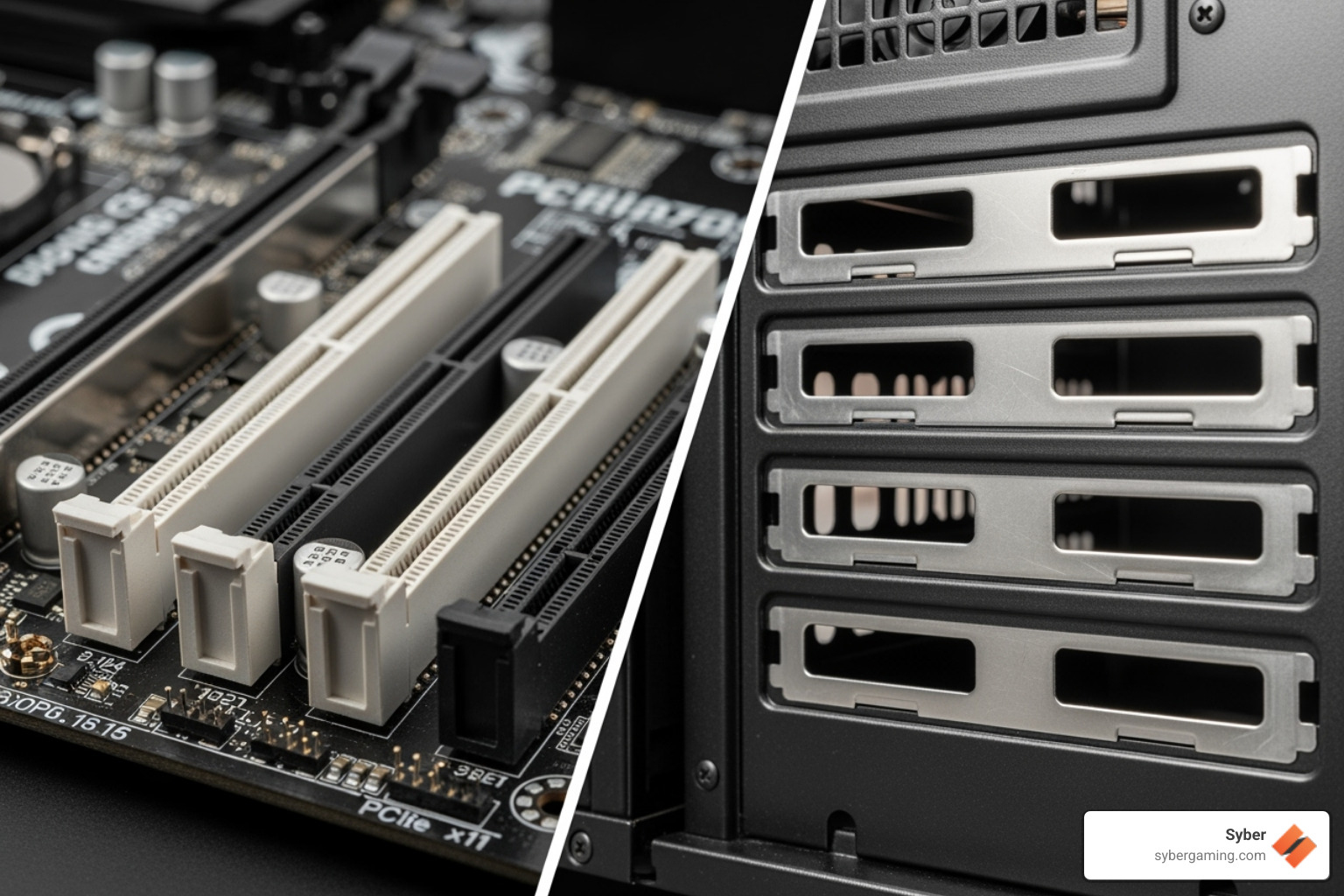
Think of it like a highway that needs an exit ramp. The motherboard slot is the highway, and the case slot is the ramp to the outside world. Your case must have enough "ramps" for all the components you plan to install on your motherboard's "highways." This is especially true for an AI gaming PC where multiple specialized cards might be needed. For more background, the article What Is an Expansion Slot? provides excellent information.
How Motherboard Form Factor Dictates Your Expansion Options
The size of your motherboard, or its form factor, is the primary factor determining how many expansion slots you get. This choice directly impacts your gaming pc high performance potential and future upgrade options.
| Form Factor | Dimensions (L x W) | Max Expansion Slots | Best For |
|---|---|---|---|
| ATX | 12" x 9.6" | 7 | Max Performance, Multi-GPU, Extensive Upgrades, AI-ready Gaming PC |
| Micro-ATX | 9.6" x 9.6" | 4 | Balanced Builds, Mid-range Gaming, Compact High Performance, AI Multitasking |
| Mini-ITX | 6.7" x 6.7" | 1 | Compact Gaming, Small Form Factor, HTPCs, AI Gaming Setup (single GPU) |
- ATX is the standard for serious gamers and power users, offering up to seven slots. This provides ample room for a powerful, multi-slot GPU, a dedicated sound card, a capture card for content creation, and other expansion cards without compromise. It is the go-to choice for maximum performance and future-proofing.
- Micro-ATX is a popular middle ground with around four slots. It's perfect for custom build gaming pcs that balance high performance with a smaller physical footprint. You can still fit a powerful GPU and one or two other cards, making it a versatile choice for most gaming and productivity needs.
- Mini-ITX is the compact choice with just one slot, which is almost always used for a graphics card. It's ideal for small, minimalist builds where desk space is a premium, such as home theater PCs (HTPCs) or portable gaming rigs. While limited in expandability, a Mini-ITX system can still be incredibly powerful.
A larger ATX case can fit smaller boards, but you can't fit a large ATX motherboard into a smaller case. Syber carefully matches form factors in systems like the M Series to ensure gamers have the expansion options they need. For more technical details, Motherboard Form Factors is a great resource.
Common Uses for Your ATX Case Expansion Slots
So, what do you put in these slots to turn a standard computer into a high performance desktop pc? Here are the most common components:
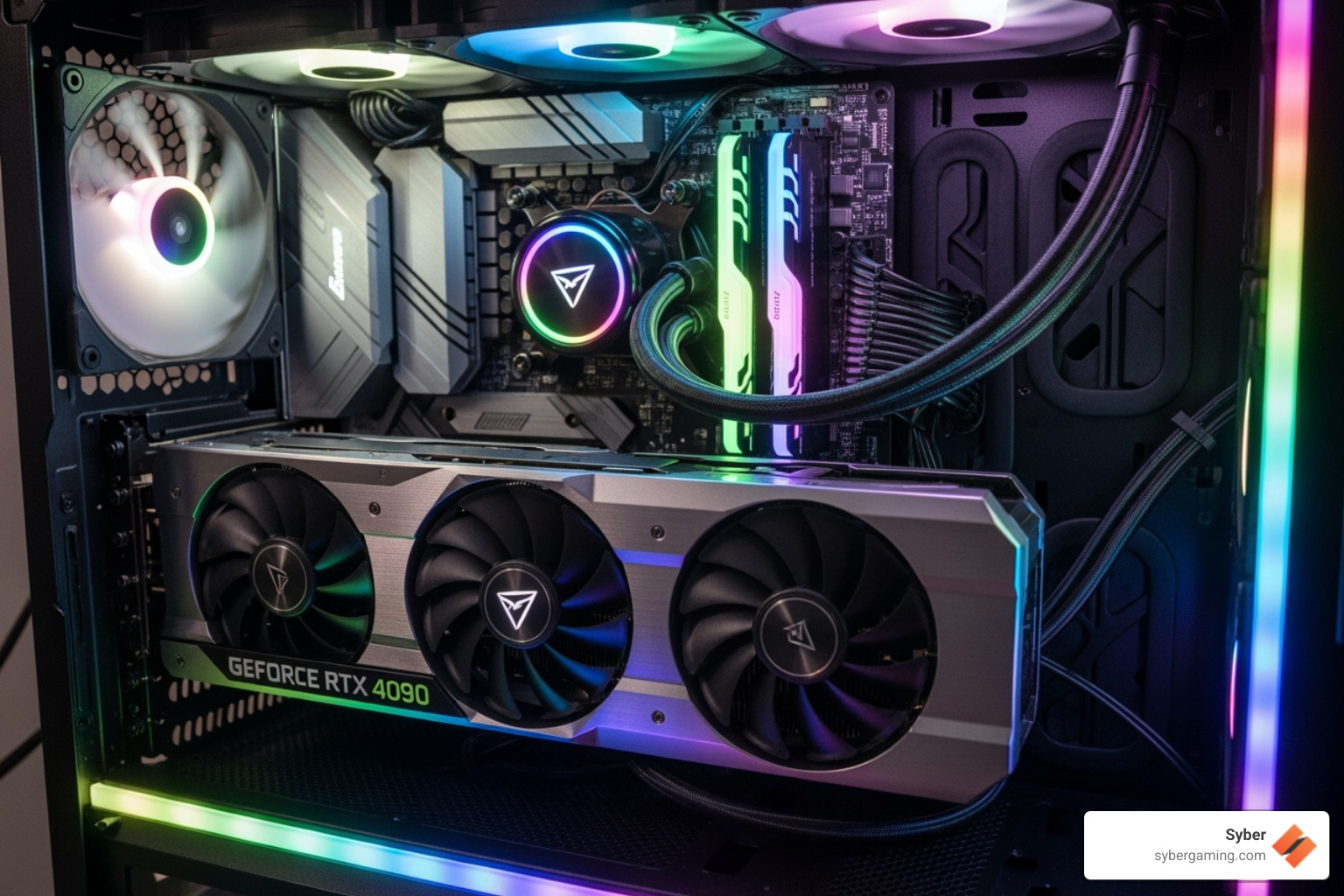
- Graphics Cards (GPUs): The star of any gaming rig. Modern GPUs are often so large they cover two, three, or even four slots. This physical size is important; a 'triple-slot' GPU will occupy the primary PCIe x16 slot on the motherboard but will physically block the two adjacent case expansion slots below it, making them unusable for other cards. The case slots provide openings for video ports (like HDMI and DisplayPort) and are also critical for ventilation, which is crucial for AI graphics rendering.
- Sound Cards: While onboard audio has improved, a dedicated card offers superior sound quality. This is important for audiophiles who want the best listening experience and for competitive gamers who rely on precise audio cues. For streamers, a dedicated sound card can provide cleaner audio input and output, with features like advanced equalization and effects processing that offload work from the CPU.
- Network Cards: A dedicated card can provide a more stable, lower-latency connection than onboard options, which is a must for competitive online gaming. You can add a card for the latest Wi-Fi standard, like Wi-Fi 6E, or a 10-Gigabit Ethernet card for ultra-fast wired networking, features that are not always standard on motherboards and are vital for AI multitasking.
- Capture Cards: Essential for streamers and content creators, these cards let you record gameplay with minimal performance impact on your gaming PC. They take a video signal as an input (often via HDMI) and use dedicated hardware to encode it for streaming or saving. They require an expansion slot for the card itself and for its input/output ports.
- USB Expansion Cards: A simple way to add more or newer USB ports for all your peripherals. If your case or motherboard lacks sufficient USB-C ports or you need to add support for a newer standard like USB4, an expansion card is an easy and effective solution.
The flexibility of atx case expansion slots lets you build the exact PC you need. Systems like the Syber Cube are designed with this expandability in mind, giving you room to grow.
Building Your Ultimate Rig: Making the Right Slot Choices
Key Considerations Before You Install a New Card
Ready to add a new component to your AI-driven gaming rig? Before you start, a few checks regarding your atx case expansion slots and system compatibility can save you a lot of headaches.
- Card Dimensions: High-end GPUs can be long, tall, and wide, often taking up two or three slots. Before buying a new card, check its official dimensions (length, height, and width/slot-count) against your case's specifications. Most case manufacturers list a 'maximum GPU length'. A card that is too long may collide with the front case fans or drive cages. A card that is too tall might prevent you from closing the side panel. Its width can block other motherboard slots or interfere with components like large CPU air coolers or case fans.
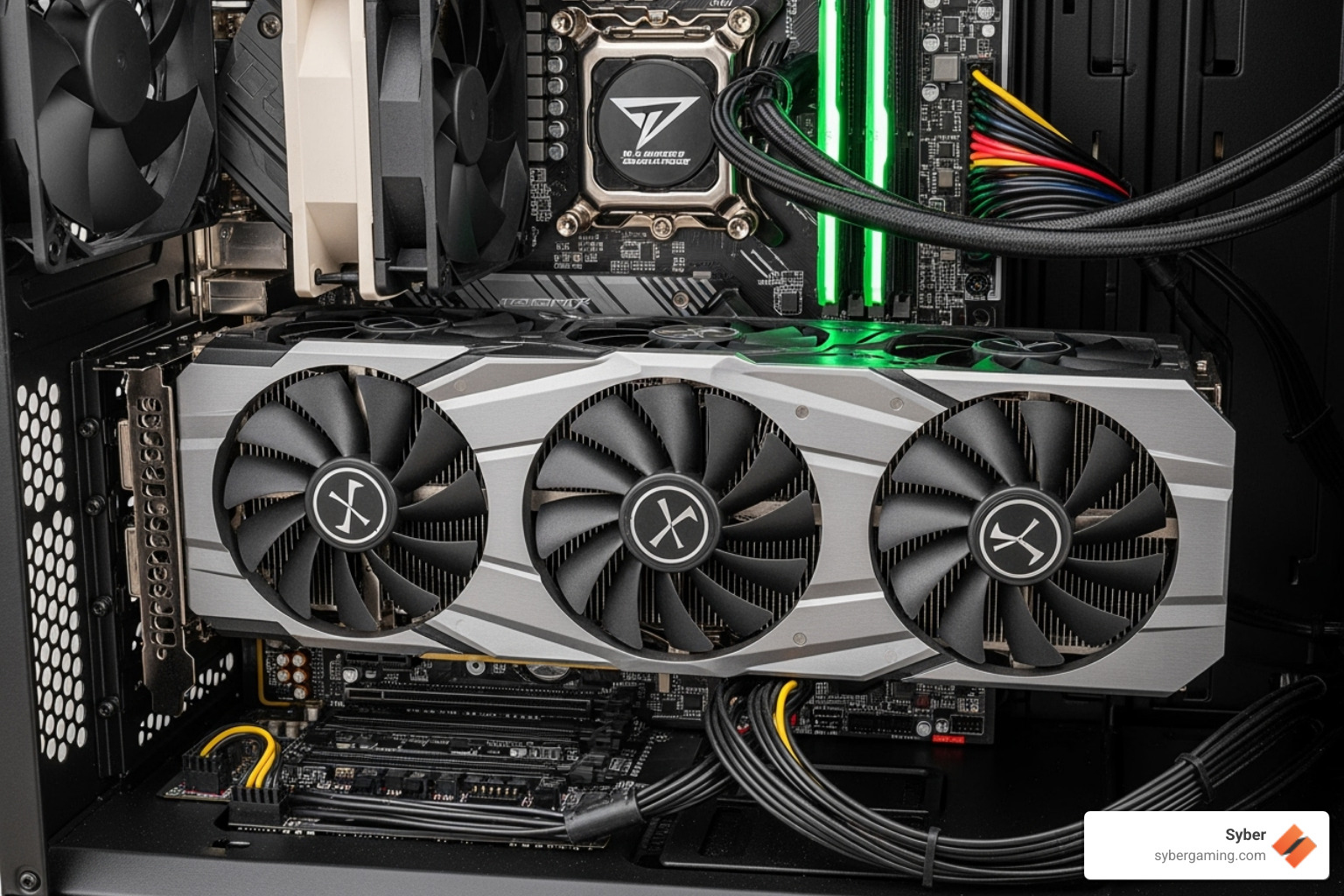
- Power Supply (PSU): Powerful cards need a lot of juice. Check the card manufacturer's website for its power consumption (TDP) and the recommended minimum PSU wattage. Also, verify that your PSU has the correct power connectors. Modern GPUs may require one or more 6-pin, 8-pin, or the newer 12VHPWR (16-pin) power connectors. An inadequate power supply can lead to system instability and crashes under load.
- Airflow: A new card, especially a large GPU, will significantly change how air moves in your case. It acts as a large wall, potentially restricting airflow to other components. Ensure there's enough space around it for its own fans to draw in cool air. Good AI cooling solutions rely on unobstructed airflow from front intake fans to the rear exhaust. Adding a powerful new component might require you to re-evaluate your case fan setup to keep temperatures down and prevent performance throttling.
- Motherboard Layout: Check the spacing of your motherboard's PCIe slots. A large graphics card installed in the top x16 slot might physically block the PCIe x1 slot directly beneath it, making it unusable. Plan your component layout in advance to ensure you can install all the cards you need without them physically interfering with one another.
Taking a moment to plan your installation ensures a smooth upgrade. Syber's commitment to Syber Machine Value & Performance means every build is optimized for component compatibility and thermal performance.
More vs. Fewer Slots: What's Right for Your Build?
Choosing between a higher or lower slot count is a key decision that defines your PC's flexibility. The right choice depends entirely on your goals.
Having more slots, like the seven on a standard ATX board, is great for future-proofing. It gives you the freedom to build an AI-ready gaming PC with a powerful GPU, a capture card for streaming, and a dedicated sound card, with room to spare for future tech.
Fewer slots, found on Micro-ATX (four) and Mini-ITX (one) boards, are ideal for compact builds where desk space is a priority. These are perfect for gamers who need a powerful machine for a specific purpose and don't plan on adding numerous extra cards.
Consider your build purpose:
- Dedicated Gaming Rig: A Micro-ATX or Mini-ITX build can be perfect if you just need one powerful GPU and are happy with integrated features.
- Gaming & Content Creation: An ATX build is better to accommodate a GPU, capture card, and other peripherals.
- Workstation/Enthusiast Builds: For tasks needing multiple specialized cards, a larger ATX or E-ATX board is essential.
It's about balancing your current needs with your future ambitions. The Syber Cube: Best Buy In-Store Launch showed how a compact form factor can still deliver an incredible gaming experience.
The Evolution and Future of ATX Case Expansion Slots
The role of atx case expansion slots has changed over time. In the past, PCs relied on standards like ISA and later PCI for nearly every function—sound, networking, modem, and even graphics required a separate card. Today, many of these features are integrated directly onto the motherboard, and they're powerful enough for most users. This integration has been a major shift in PC building.
This shift has made the remaining slots even more important, reserving them for high-performance, specialized components. The undisputed king of the expansion slot is the GPU. As AI-driven performance and graphics become standard, the demand for powerful GPUs has driven the evolution of the PCIe standard itself. Each new generation (from PCIe 3.0 to 4.0 and now 5.0) doubles the available bandwidth to prevent the GPU from being bottlenecked. At the same time, the rise of M.2 slots for ultra-fast storage has freed up PCIe slots that were once used for storage controller cards. These M.2 drives connect directly to the motherboard, offering incredible speeds without occupying a traditional expansion slot.
Looking ahead, the future of expansion slots will continue to revolve around the GPU and other high-bandwidth devices. While specialized cards for AI acceleration, professional audio, and ultra-fast networking will still be relevant for enthusiasts and professionals, the trend of integration will continue for mainstream features. The primary focus for case and motherboard designers will be on providing maximum power and bandwidth to that all-important primary GPU slot, ensuring it can handle the ever-increasing demands of future applications and games. Syber understands this balance, creating custom gaming PCs that leverage the best of both integrated tech and expansion flexibility. Explore their M-Series Gaming PCs to see this philosophy in action.
Conclusion: Your PC's Potential Awaits
Understanding atx case expansion slots is about seeing the bigger picture of your PC's potential. These openings are the gateways that open up the full power of your components, turning a standard machine into a high performance gaming PC.
We've covered how case slots and motherboard slots must work together, how form factor dictates your options, and what to consider before installing a new card. The right number of slots depends on your vision for your rig. Whether you want a compact powerhouse or a fully expandable station for an AI gaming experience, making an informed choice is key.
Syber's commitment to rigorous testing ensures every component works in harmony to deliver elite performance. By making smart decisions about your build, you're crafting an intelligent gaming PC ready for today's games and tomorrow's innovations.
Ready to build a gaming PC with the perfect balance of features and expandability? Syber offers a range of high performance custom prebuilt gaming PCs designed to meet the demands of any gamer. Explore Syber's custom gaming PCs today to open up your full gaming potential.


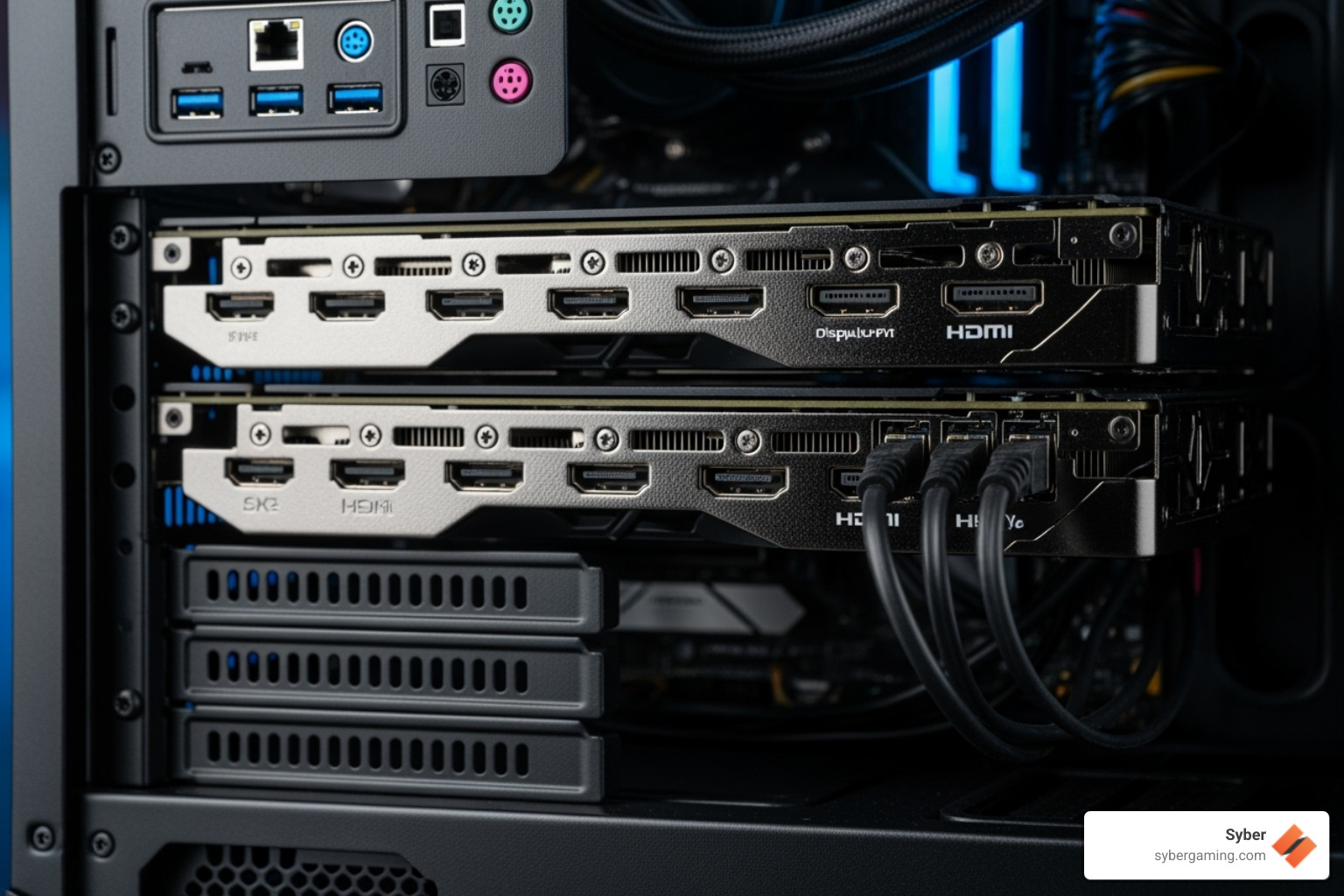
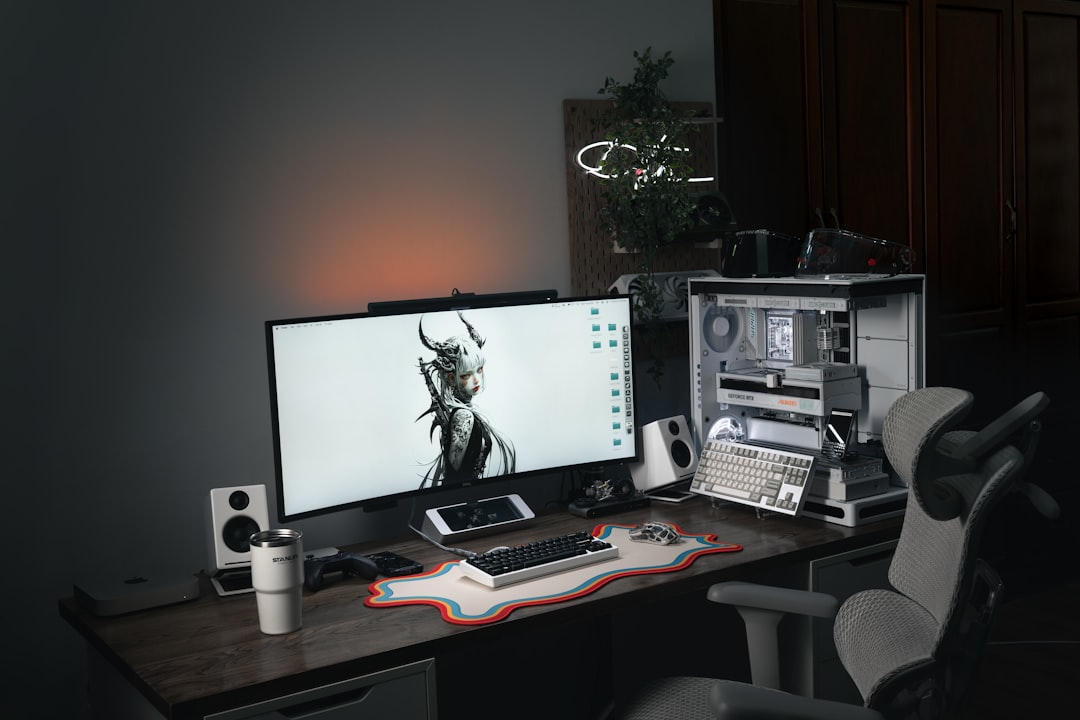


.svg)

